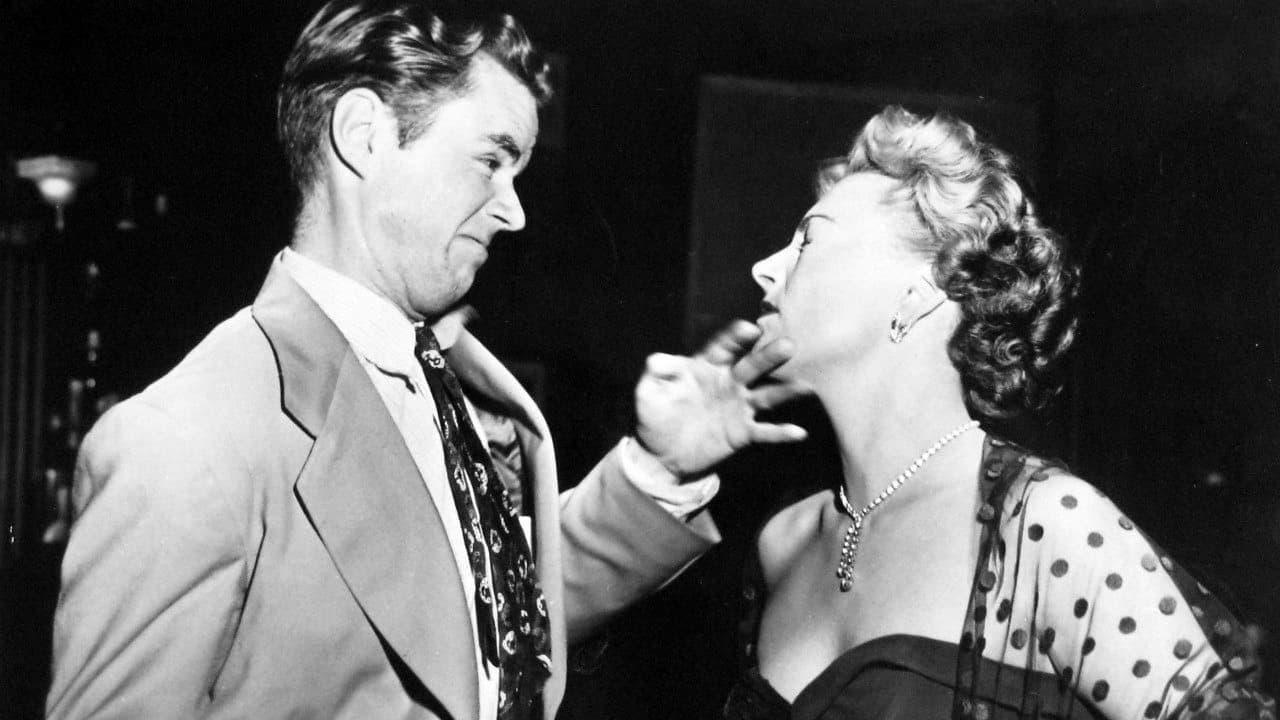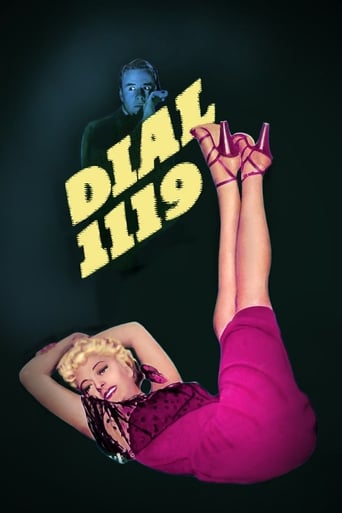

Truly Dreadful Film
... View MorePerfect cast and a good story
... View MoreIn truth, there is barely enough story here to make a film.
... View MoreGreat movie. Not sure what people expected but I found it highly entertaining.
... View MoreThis story seems to repeat itself over and over again in movies, TV, and real life.An angry war veteran seizes hostages and/or murders innocents, and gains media attention and feedback -- in this movie, by means of telephone and television.(Does the name Christopher Dorner ring a bell?)Perhaps this was one of the first depictions of PTSD. It was released in 1950, and the main character describes his experiences in the Pacific War.Also, there's a psychiatrist involved -- and a handgun with more than one clip, and an explosive device -- but not a single cell phone, helicopter, or automatic pistol.The scenario has truthiness.
... View MoreDial 1119 is directed by Gerald Mayer and collectively written by Hugh King, Don McGuire and John Monks Junior. It stars Marshall Thompson, Virginia Field, Andrea King, William Conrad and Sam Levine. Music is by Andre Previn and cinematography by Paul C. Vogel. The Killing Hour. A compact suspenser, Dial 1119 can be seen as very much a prototype of future thrillers where a hostage situation takes place. Here the story basically sees Thompson as escaped mental patient Gunther Wyckoff, who takes a bus to Terminal City, grabs hold of a gun and holes up in a bar with a small group of hostages. His aim is to reap revenge on the doctor who spared him the electric chair and had him committed instead.In the bar is the barman, the busboy who is an expectant father, a barfly broad, a Lothario and the young lady he had coerced into having a fling with him. As tensions rise in the bar, outside the crowd gathers and so does the press, who sensationalise the situation. The cops scratch around for a solution, one of which seems to be kill Wyckoff at any cost! The narrative has caustic observations on these outside parties, while it also brings into play the delusions of the troubled Wyckoff who believes he is a war torn ex squaddie. The film doesn't shy away from violence either, there will be blood, as it were.It's acted and directed commendably and Vogel's black and white photography is crisp and perfectly in keeping with the tone of the picture. All in all it's a good and suspenseful way to spend 75 minutes. 7/10
... View MoreThis seldom seen, nearly forgotten gem stands out as a precursor to many movie motifs now taken for granted. A deranged young man, Gunther Wyckoff (whacko with a gun, played menacingly by Marshall Thompson in perhaps his best performance), shoots a city bus driver with the driver's own pistol, then holds up in a local bar using the patrons as hostages. In those long ago days when such occurrences were rare, there were no professional police negotiators. Ironically, Wyckoff does his own negotiating with the law, demanding to see the psychiatrist that is in charge of treating him.What a crew of hostages: A barfly willing to bed anyone who buys her a drink, an old married fool making arrangements for a weekend tryst with a sweet young thing, a young man whose wife is in delivery at the hospital, a zealous reporter whose newspaper editor thinks he's a joke, and Chuckles, the bartender, played by the dour William Conrad of radio's "Gunsmoke" and later TV's "Cannon" fame. Maybe he got his moniker for being the opposite of chuckles, such as calling a big guy, Tiny. The interaction of this motley crew with each other and with the criminally insane killer makes up the biggest part of the flick. An alternate title was "The Violent Hour," which basically describes the plot of the film, approximately an hour's standoff between the psycho and the police who work to free the hostages unharmed. A young André Previn provides the appropriate atmospheric music.What a splendid cast. Even workhorse Charles Lane, who is today 101 and says he is still available to do a show, is seen briefly on the tube in a man-on-the-street interview. And don't blink and miss June Cleaver (Barbara Billingsley) in a walk on part. Items you don't see around anymore: A cigarette machine, a weight scale on the sidewalk, a pay telephone that costs a nickle to dial 1119 (no push buttons). Items that were curiosities at the time but are now part of everyday life: A flat-panel big screen TV, TV news hype, and, alas, crazies that for no reason shoot patrons who are total strangers.The chosen title, "Dial 1119," which today reminds the viewer of "Call 911," is a fitting one. Labeling the location Terminal City, however, is a bit much.
... View MoreA little storyline before I get to the bad stuff. This psycho rolls into town on a bus and shoots the driver with his own gun for no apparent reason. I say for no apparent reason because for the first 15 minutes of the movie, he never says a word. What is a bus driver doing with a pistol anyway? He then wanders into a bar full of cast characters, and when his picture appears on tv, he shoots the bartender. Again for no apparent reason. He then holds the bar patrons hostage and notifies the cops with a demand that he wants to see his shrink. By this time, I wanted to see my shrink.The psycho is played - or should I say underplayed - by Marshall Thompson. This guy has been a minor player in movies, and later TV, forever. He specialized in innocent, usually naive characters. He should have stuck with it. This isn't acting. I don't know what it is. He practically walks in his sleep, There are occasional eruptions of violent hysteria to remind us that he is nuts. Otherwise, we would think he was asleep. He sometimes launches into a whining explanation of all his problems. The only people who care are the ones he's holding hostage. By the middle of this movie, I felt like I was held hostage. From time to time they cut to Sam Levene who plays the shrink. He sounded crazier than the psycho! I have to believe all these actors were contract players. Nobody could possibly have wanted to appear in this movie voluntarily.There is one peculiar aspect to this movie that caught my attention. They seem to be fascinated with TV. This was 1950 and TV was still largely an oddity to most folks. There is a large screen TV in this seedy bar that probably wouldn't rate a pin ball machine in real life. They feature shots of those immense early tv cameras as well as the control trailers with all the flashing lights, dials, knobs, and switches. Anyway, the shrink finally talks his way into the bar and takes that high energy opportunity to confront this guy with the news that he was rejected by the draft and invented a story that the military taught him to kill in order to hide his own inadequacies. What! This guy has been under treatment for years, locked up in a rubber room, and the shrink takes this explosive moment to confront him. Well, guess what happens.Meantime, do yourself a favor. If you ever decide to watch this, play a little background music on your stereo to fill in all the dead time.
... View More